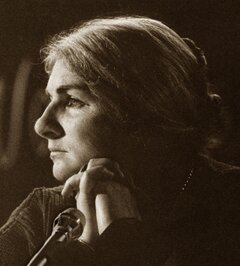
Related Readings

|
1985. American-born photographer and author, Margaret Randall, returning to this country after living in Central America, was ordered deported under the Walter McCarran Act. The McCarthy era law excluded people like Pablo Neruda, Graham Greene, Gabriel Garcia Marques and 40,000 others from the country. |
| In the deportation proceedings, the INS lawyer asked me, "How did you feel about publishing a magazine that also published communists?" "Fine, fine." I mean, what are you supposed to say to that kind of question? She was terribly anti-communist, and she consistently exploited my womanness: Did I pose nude for art classes? Is it true that I waitressed in a gay bar in the fifties? How did I fall in love with my husband? Those kind of questions are offensive. My lawyers jumped to their feet every time she asked me one like that, but in most cases the judge overruled their objections. When newspeople asked INS to comment, they kept saying, "It's not a First Amendment case. It had nothing to do with her writings." Yet, in the hearing itself, the only thing on trial was my writings. The government had no witnesses. They had pages and pages of my books, magazines articles, and poems. I had written a poem to Che Guevara when he died. That proved I was a "communist." I had spelled America with three Ks. That proved I was "ill disposed to the good order and happiness of the United States." Without a doubt, the hearing was a First Amendment case. My writings were being used against me. |
